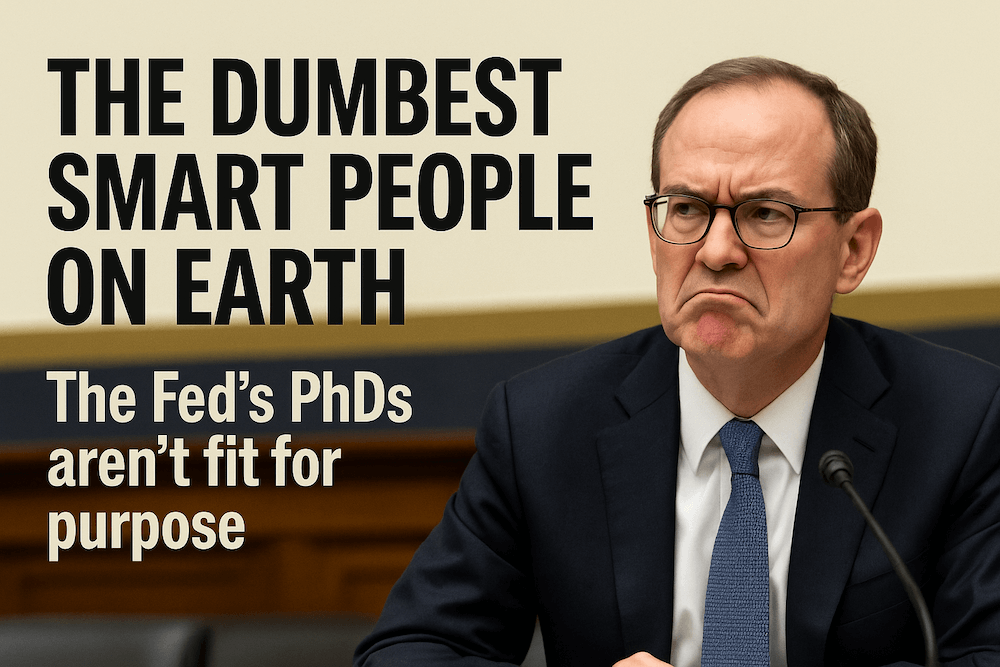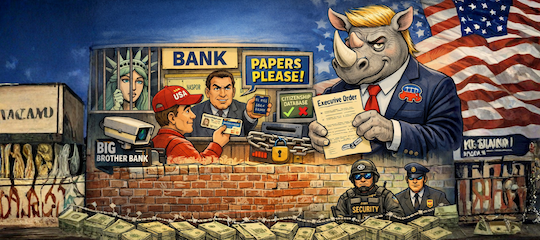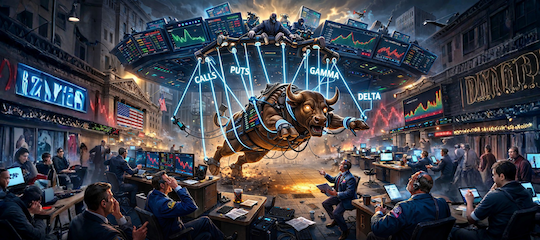
Posted July 23, 2025
By Sean Ring
The Dumbest Smart People on Earth
As a corporate trainer on graduate programs, I have no safety net. My clients can dismiss me at any time for any reason. That makes me prepare like a madman for my courses, so I can teach to the best of my ability. I need to understand different ways of explaining subjects so that as many students as possible can understand.
I don’t get to say things like “Maybe you’re not cut out for this” or “This is a simple concept; I don’t know why you don’t get it.”
One accounting teacher friend of mine can teach deferred taxes six different ways. I use fundamental analysis and charts to explain market movements. When I teach business writing, I’ve got many arrows in my quiver to show the students.
We do this because we love to teach. We fancy ourselves the Hogwarts professors of finance, accounting, and economics because we use our experience to explain concepts - and what the junior bankers will see in the real world - in a way they’ll be able to wield that experience themselves.
I have zero respect for PhDs with tenure who are useless in the classroom. I never got why universities let these people anywhere near students. If you want them for their research abilities, that's great; use them for that purpose. But if you think that a PhD translates to teaching ability, well, just sit in any university classroom and then tell me what you think.
Now, U.S. Treasury Secretary Scott Bessent is questioning why the Fed’s PhDs are so bad at their jobs.
What a PhD Is
Let’s get this out of the way up front: a PhD doesn’t mean you’re smart. It means you’re specialized. Very, very specialized. You’ve spent at least half a decade burrowing into a rabbit hole so deep that most normal people would rather stick pins in their eyes than join you.
But when it comes to seeing the big picture, making policy decisions that affect 330 million people in the US and billions more abroad, or heaven forbid, teaching, your average PhD is like a man with a flashlight in a cave—blinded the second he steps into daylight.
That’s not me saying it. That’s Mortimer J. Adler, one of the last truly great public intellectuals, who told us bluntly decades ago: “The worst teachers in the world are PhDs.”
Why?
Because they’ve been trained to write unreadable dissertations, not communicate, connect, or convey wisdom. (Hence, my business writing courses banks pay me to teach their new graduates.)
They know how to dissect frog intestines at the sub-atomic level but can’t explain basic biology to a 14-year-old. In Adler’s exact words: “The PhD is not a teacher’s degree. It’s a research degree. And it produces the worst teachers in the world.”
Most people with a college education agree.
This brings us to the Federal Reserve.
The Fed is UBI For Academic Economists
Scott Bessent—former Soros lieutenant, billionaire hedge fund manager, and no intellectual lightweight—recently published a stunning critique of the Fed. You can read it yourself here, but here’s the highlight reel:
The Fed does regular reviews of its monetary policy framework. I would urge Fed leadership to similarly undertake, publish and implement a comprehensive institutional review across its entire mission to buttress its credibility.
Buttress its credibility?
Bessent isn’t throwing shade just to be spicy. He’s pointing out something the financial world has whispered for decades: The people running U.S. economic policy don’t understand risk. They’ve never had to. They’ve spent their careers in cloistered academic departments or legal offices, crafting theories and rules that sound nice in a seminar but implode in real life.
Bessent said:
...all these PhDs over there, I don’t know what they do. This is like universal basic income for academic economists.
PhDs at the Fed are the kind of folks who can calculate the convexity of a mortgage-backed security to the twelfth decimal place but didn’t see the subprime crisis coming. Or more recently, the kind of credentialed geniuses who insisted inflation was “transitory” until it torched your grocery bill for two straight years.
Bessent continued:
Rather than preempting crises, regulators all too often react to them after the fact. They play the role of a hazmat cleanup team instead of preventing dangerous spillovers in the first place.
Bessent calls for a “fundamental reset” of the financial regulatory regime. He wants real-world practitioners—not just ivory tower theorists—at the table. Traders, entrepreneurs, people who’ve made decisions with real money on the line. People who’ve sweated through margin calls and negotiated payroll on a Friday with a negative cash balance. In other words: not PhDs.
And he’s got a point.
PhDs are trained to minimize uncertainty and isolate variables. But markets are uncertain and interdependent. They require judgment, intuition, and courage. Not another Monte Carlo simulation.
It’s not that all PhDs are useless. But their usefulness is severely limited outside their narrow field of study. You don’t ask the guy who invented a new polymer to redesign the nation’s energy grid. And you don’t ask a labor economist who’s never traded a bond to run monetary policy for the world’s reserve currency.
(That’s why it was smart not to appoint Paul Krugman as Fed Chairman, though his former Princeton colleague, Ben Bernanke, hardly did a better job than Krugman would have.)
But that’s precisely what we’ve done: asked experts in narrow fields to run our country’s monetary policy.
The modern regime of credentialed experts is long on prestige and short on results. We’ve replaced wisdom with academic gobbledygook. And now we’re paying the price.
Wrap Up
When Scott Bessent asks what the heck these people at the Fed are doing, he’s not just asking for a policy review. He’s asking for a revolution.
It’s time we stop mistaking credentials for competence. And it’s time we remember: the smartest people in the room might not be the ones with the most letters after their names—but the ones who’ve done something in the real world.

The Biggest RINO of Them All
Posted February 27, 2026
By Sean Ring

Sports, Predictions, and Morons
Posted February 26, 2026
By Sean Ring

SOTU or STFU?
Posted February 25, 2026
By Sean Ring

Building an AI-Proof Portfolio
Posted February 24, 2026
By Sean Ring

Beware of Flying Turkeys
Posted February 23, 2026
By Matt Badiali

